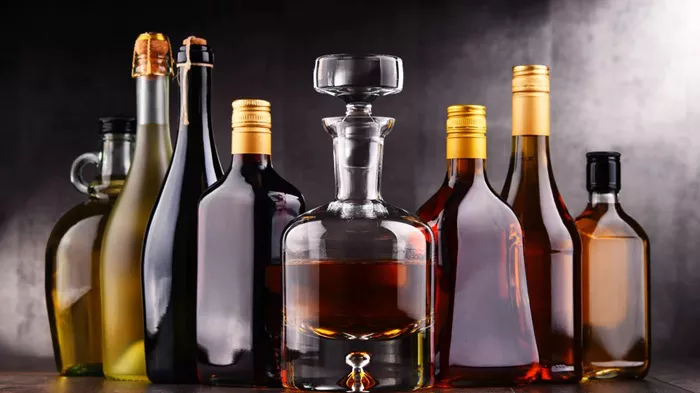In the world of spirits and libations, herbal liqueurs stand as a distinct category, captivating connoisseurs and cocktail enthusiasts alike. What is a herbal liqueur, one might wonder? These intriguing concoctions have a rich history, a complex array of flavors, and unique production processes that set them apart in the realm of alcoholic beverages.
Defining Herbal Liqueurs: A Marriage of Flavors and Botanicals
At its core, what is a herbal liqueur? Herbal liqueurs are spirits infused with a variety of botanicals, herbs, and spices, creating a complex flavor profile that distinguishes them from other spirits. These aromatic blends often include ingredients such as roots, fruits, flowers, and seeds. The result is a harmonious marriage of flavors, combining the sweetness of fruits with the bitterness of herbs and the warmth of spices.
Historical Roots: Tracing the Origins of Herbal Liqueurs
To truly understand what a herbal liqueur is, we must delve into its rich historical roots. The origins of herbal liqueurs can be traced back to ancient monasteries, where monks meticulously crafted herbal elixirs for medicinal and spiritual purposes. Over time, these elixirs evolved into the herbal liqueurs we know today. Brands like Chartreuse, with its centuries-old recipe developed by Carthusian monks, exemplify the deep historical ties of herbal liqueurs.
The Alchemy of Production: Crafting Herbal Liqueurs
Understanding what a herbal liqueur is involves unraveling the alchemy behind its production. The process typically begins with a neutral spirit, often distilled from grains or grapes. This base spirit serves as a canvas for the infusion of botanicals. The selection and combination of herbs and spices are key factors in defining the unique character of each herbal liqueur. After the infusion, the spirit is often sweetened with sugar or honey, adding another layer of complexity to the final product.
Notable Herbal Liqueurs: Exploring the Diverse Landscape
The world of herbal liqueurs is vast and diverse, featuring a plethora of brands and expressions. Each herbal liqueur has its own distinctive blend of botanicals, resulting in a wide range of flavors. Jägermeister, with its bold blend of 56 herbs, spices, and citrus peels, is a prime example of a well-known herbal liqueur. Meanwhile, the Italian-made Amaro Montenegro showcases a more nuanced profile, incorporating botanicals like marjoram and oregano.
See Also: xo meaning cognac
Herbal Liqueurs in Mixology: Elevating Cocktails to Artistry
One cannot discuss what a herbal liqueur is without exploring its role in mixology. Bartenders around the world embrace herbal liqueurs for their ability to add depth and complexity to cocktails. Chartreuse, for instance, is a staple in classic cocktails like the Last Word, where its herbal notes complement other ingredients such as gin and maraschino liqueur. The versatility of herbal liqueurs makes them essential components in both traditional and innovative cocktail recipes.
Navigating the Flavors: Understanding Herbal Liqueur Profiles
Herbal liqueurs exhibit a wide array of flavor profiles, making it essential for enthusiasts to understand the nuances of each. Some herbal liqueurs, like Fernet Branca, lean towards the bitter end of the spectrum with a robust herbal bitterness. Others, such as St-Germain Elderflower Liqueur, bring floral and sweet notes to the forefront. Exploring the diverse flavors of herbal liqueurs allows individuals to find the perfect match for their palate and cocktail preferences.
The Resurgence of Artisanal Craft: Small-Batch Herbal Liqueurs
In recent years, the spirits industry has witnessed a resurgence of interest in artisanal and craft products, and herbal liqueurs are no exception. Small-batch producers are gaining recognition for their commitment to quality and innovation. These craft herbal liqueurs often showcase unique botanical combinations and production techniques, providing consumers with a broader range of options and flavors to explore.
Herbal Liqueurs and Health: Navigating the Fine Line
Given the historical roots of herbal liqueurs in medicinal elixirs, the question of their health implications arises. Understanding what a herbal liqueur is includes recognizing that, despite their origins, these beverages are primarily crafted for enjoyment rather than medicinal purposes today. While some herbs may have health benefits, it is crucial to consume herbal liqueurs responsibly and in moderation, keeping in mind their alcoholic content.
Trends and Innovations: Shaping the Future of Herbal Liqueurs
The landscape of herbal liqueurs is not stagnant; it continues to evolve with changing consumer preferences and emerging trends. The demand for low-alcohol and non-alcoholic alternatives has led to the creation of herbal-infused spirits that capture the essence of traditional liqueurs without the intoxicating effects. This innovation reflects a growing awareness of health-conscious choices while still appreciating the unique flavors that herbal liqueurs offer.
Conclusion: Embracing the Enigmatic World of Herbal Liqueurs
In conclusion, what is a herbal liqueur? It is a captivating and enigmatic category of spirits that combines history, craftsmanship, and a diverse array of botanicals. From the ancient elixirs of monks to the bustling craft distilleries of today, herbal liqueurs have withstood the test of time and continue to enthrall enthusiasts worldwide. Whether sipped neat, on the rocks, or as a key player in a well-crafted cocktail, herbal liqueurs invite us to embark on a sensory journey through the intricate world of flavors and aromas.


